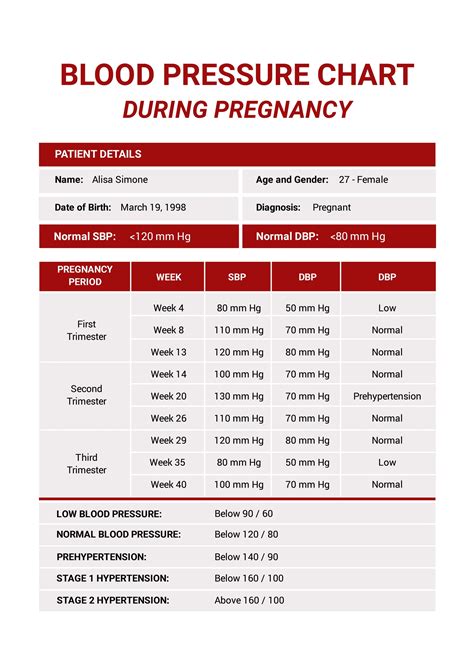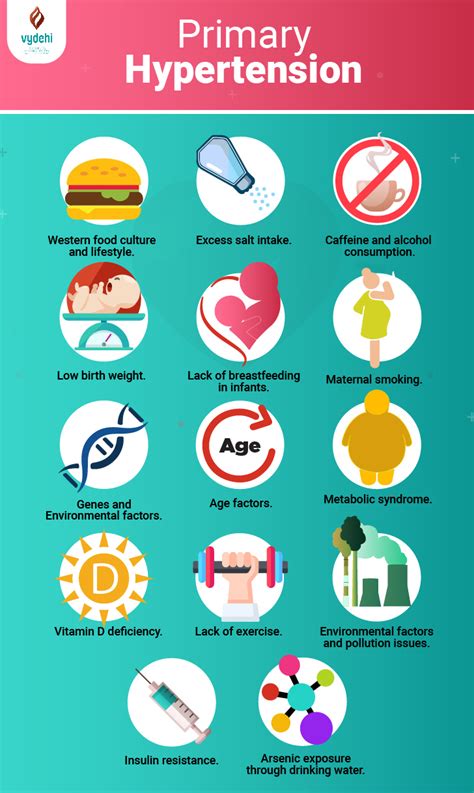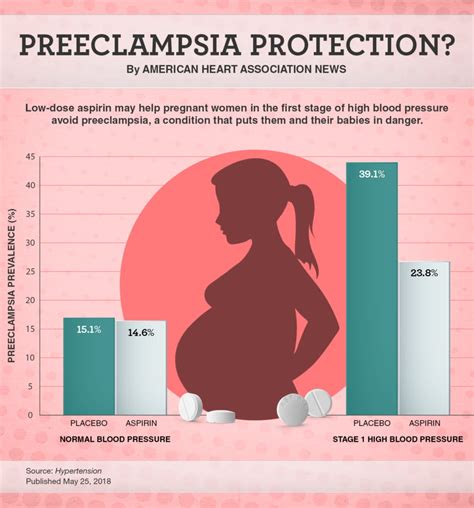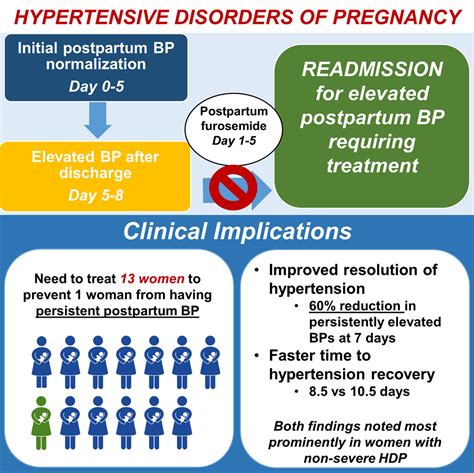Intro
Learn about pregnancy blood pressure matters, including hypertension, preeclampsia, and gestational diabetes, to ensure a healthy pregnancy and prevent complications with regular blood pressure monitoring and prenatal care.
Pregnancy is a life-changing experience that brings immense joy and excitement, but it also comes with its fair share of challenges and health concerns. One of the critical aspects of pregnancy care is monitoring blood pressure, as it plays a vital role in ensuring the health and well-being of both the mother and the baby. High blood pressure during pregnancy can lead to complications, making it essential for expectant mothers to understand the importance of blood pressure management. In this article, we will delve into the world of pregnancy blood pressure, exploring its significance, risks, and ways to maintain a healthy blood pressure level throughout the gestation period.
As pregnancy progresses, the body undergoes numerous changes, and blood pressure is one of the key indicators of maternal health. Blood pressure is the force exerted by blood against the walls of blood vessels, and it is measured in millimeters of mercury (mmHg). A normal blood pressure reading is typically around 120/80 mmHg, but it can fluctuate throughout the day. During pregnancy, blood pressure is closely monitored to detect any potential issues that may arise. High blood pressure, also known as hypertension, can lead to complications such as preeclampsia, a condition characterized by high blood pressure and damage to organs like the kidneys and liver.
The risks associated with high blood pressure during pregnancy are significant, and it is crucial for expectant mothers to be aware of the potential complications. Preeclampsia, for instance, can lead to premature birth, low birth weight, and even stillbirth. Additionally, high blood pressure can increase the risk of placental abruption, a condition where the placenta separates from the uterus, depriving the baby of oxygen and nutrients. Moreover, uncontrolled hypertension can lead to long-term health consequences for the mother, including cardiovascular disease and kidney damage. Therefore, it is essential to prioritize blood pressure management during pregnancy to ensure a healthy outcome for both the mother and the baby.
Pregnancy Blood Pressure Monitoring

Importance of Blood Pressure Monitoring
Blood pressure monitoring is vital during pregnancy, as it helps healthcare providers detect any potential issues early on. By monitoring blood pressure, healthcare providers can identify women who are at risk of developing hypertension or preeclampsia, allowing for prompt intervention and treatment. Additionally, blood pressure monitoring helps healthcare providers assess the effectiveness of any treatments or interventions, making adjustments as needed to ensure the best possible outcome for the mother and the baby. Furthermore, blood pressure monitoring can help identify any underlying health conditions that may be contributing to high blood pressure, such as kidney disease or thyroid disorders.Risks of High Blood Pressure During Pregnancy

Managing High Blood Pressure During Pregnancy
Managing high blood pressure during pregnancy requires a comprehensive approach that involves lifestyle modifications, medical treatment, and close monitoring. Some of the ways to manage high blood pressure during pregnancy include: * Maintaining a healthy diet: eating a balanced diet that is rich in fruits, vegetables, and whole grains can help lower blood pressure * Engaging in regular physical activity: regular exercise can help lower blood pressure and improve overall health * Managing stress: stress can exacerbate high blood pressure, making it essential to engage in stress-reducing activities like meditation, yoga, or deep breathing exercises * Getting enough sleep: getting adequate sleep is essential for maintaining healthy blood pressure levels * Monitoring blood pressure: regular blood pressure monitoring can help healthcare providers detect any potential issues early on, allowing for prompt intervention and treatmentPregnancy Blood Pressure Treatment Options

Pregnancy Blood Pressure Medications
Pregnancy blood pressure medications are typically used as a last resort due to the potential risks to the baby. Some of the medications that may be prescribed include: * Methyldopa: this medication is often used to treat high blood pressure during pregnancy, but it can have side effects like drowsiness and liver damage * Nifedipine: this medication is a calcium channel blocker that can help lower blood pressure, but it can have side effects like headaches and dizziness * Labetalol: this medication is a beta-blocker that can help lower blood pressure, but it can have side effects like fatigue and nauseaPregnancy Blood Pressure Prevention

Pregnancy Blood Pressure and Lifestyle Modifications
Lifestyle modifications play a critical role in preventing and managing high blood pressure during pregnancy. Some of the lifestyle modifications that can help include: * Quitting smoking: smoking can increase the risk of high blood pressure, making it essential to quit smoking before and during pregnancy * Limiting caffeine intake: excessive caffeine intake can increase blood pressure, making it essential to limit caffeine intake during pregnancy * Avoiding excessive salt intake: excessive salt intake can increase blood pressure, making it essential to limit salt intake during pregnancy * Engaging in regular physical activity: regular exercise can help lower blood pressure and improve overall healthPregnancy Blood Pressure and Preeclampsia

Pregnancy Blood Pressure and Placental Abruption
Placental abruption is a condition where the placenta separates from the uterus, depriving the baby of oxygen and nutrients. It is a leading cause of maternal and fetal morbidity and mortality, making it essential to detect and treat it promptly. Some of the symptoms of placental abruption include: * Vaginal bleeding: placental abruption can cause vaginal bleeding, which can be a sign of the condition * Severe abdominal pain: placental abruption can cause severe abdominal pain, which can be a sign of the condition * Back pain: placental abruption can cause back pain, which can be a sign of the condition * Fetal distress: placental abruption can cause fetal distress, which can be detected through fetal monitoringPregnancy Blood Pressure and Fetal Health

Pregnancy Blood Pressure and Maternal Health
High blood pressure during pregnancy can also have a significant impact on maternal health, making it essential to manage and treat it promptly. Some of the ways that high blood pressure can affect maternal health include: * Cardiovascular disease: uncontrolled hypertension can increase the risk of cardiovascular disease, including heart attack, stroke, and kidney disease * Kidney damage: high blood pressure can cause kidney damage, which can lead to chronic kidney disease and end-stage renal disease * Liver damage: high blood pressure can cause liver damage, which can lead to liver failure and other complications * Vision changes: high blood pressure can cause vision changes, including blurred vision, double vision, and sensitivity to lightPregnancy Blood Pressure and Postpartum Care

Pregnancy Blood Pressure and Future Pregnancies
High blood pressure during pregnancy can have a significant impact on future pregnancies, making it essential to manage and treat it promptly. Some of the ways that high blood pressure can affect future pregnancies include: * Increased risk of preeclampsia: women who have experienced preeclampsia in a previous pregnancy are at increased risk of developing it again in future pregnancies * Increased risk of placental abruption: women who have experienced placental abruption in a previous pregnancy are at increased risk of developing it again in future pregnancies * Increased risk of premature birth: women who have experienced premature birth in a previous pregnancy are at increased risk of developing it again in future pregnancies * Increased risk of low birth weight: women who have experienced low birth weight in a previous pregnancy are at increased risk of developing it again in future pregnanciesWhat is the normal blood pressure range during pregnancy?
+A normal blood pressure reading during pregnancy is typically around 120/80 mmHg, but it can fluctuate throughout the day.
What are the risks of high blood pressure during pregnancy?
+High blood pressure during pregnancy can lead to complications such as preeclampsia, premature birth, low birth weight, and placental abruption.
How can I manage high blood pressure during pregnancy?
+Managing high blood pressure during pregnancy requires a comprehensive approach that involves lifestyle modifications, medical treatment, and close monitoring. Some of the ways to manage high blood pressure during pregnancy include maintaining a healthy diet, engaging in regular physical activity, managing stress, and getting enough sleep.
What are the symptoms of preeclampsia?
+The symptoms of preeclampsia include high blood pressure, proteinuria, severe headaches, and vision changes.
How can I prevent high blood pressure during pregnancy?
+Preventing high blood pressure during pregnancy requires a comprehensive approach that involves lifestyle modifications and close monitoring. Some of the ways to prevent high blood pressure during pregnancy include maintaining a healthy weight, engaging in regular physical activity, eating a balanced diet, managing stress, and getting enough sleep.
We hope that this article has provided you with a comprehensive understanding of pregnancy blood pressure and its significance during pregnancy. High blood pressure can have a significant impact on both maternal and fetal health, making it essential to manage and treat it promptly. By understanding the risks and taking steps to prevent and manage high blood pressure, expectant mothers can help ensure a healthy outcome for both themselves and their babies. If you have any further questions or concerns, please do not hesitate to reach out to your healthcare provider. Additionally, we invite you to share your thoughts and experiences in the comments section below, and to share this article with anyone who may benefit from the information.
